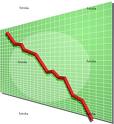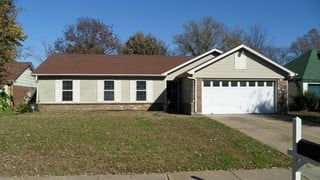I found this great news article at Forbes.com that I thought everyone should read as soon as possible to get an insight into what is continuing to take place in the housing market. There is a sense of relief being perpetrated in the media including right here in Memphis that the worst of the housing crisis is behind us. Let's hope that is true, the worst is over.
 But don't mistake that for a recovery. Most economists agree that a prolonged, painful recovery in the housing sector might be the best thing for which we can hope. As real estate investors, that is fantastic for the prospects of continuing to purchase great investments deals. When investing in Memphis, because we tout the long-term benefits of buying and holding, the long, drawn-out process of recovery is a non-factor in our buying plan.
But don't mistake that for a recovery. Most economists agree that a prolonged, painful recovery in the housing sector might be the best thing for which we can hope. As real estate investors, that is fantastic for the prospects of continuing to purchase great investments deals. When investing in Memphis, because we tout the long-term benefits of buying and holding, the long, drawn-out process of recovery is a non-factor in our buying plan.
Read the story below and leave me a message about when you think the recovery will truly come. Until then - all the best in your investing!
Chris
------------------------------
The Great Housing Recession Continues
Thomas F. Cooley and Peter Rupert 04.21.10, 6:00 AM ET
A kind of silly debate has broken out among economists over whether our recent downturn deserves the label "The Great Recession." We'll leave it to others to sort this out. But we would argue that the downturn in the housing sector is pretty "great"--far worse than in past recessions. Periodically in this column we have presented a visual assessment of where we stand in the current recession, with a focus on consumption, investment and employment. This week we look at housing.
There were suggestions in the media this week that there might be a turnaround in housing because there was a slight drop in delinquencies and total foreclosures--but you really have to be an unconstrained optimist to see the housing market as anything but dire.
The behavior of the housing sector over this recession is unlike anything in recent history. This can easily be seen in the first figure below, which shows the percentage increase in foreclosures over the past several recessions. The housing meltdown started with a vengeance; in less than a year the percentage increase in foreclosures since the previous peak was already twice as high as during any other recession in recent history.
The current housing downturn has been particularly acute in several states--California, Nevada, Arizona and Florida--but it isn't confined to them. Ohio, Michigan and many states that did not have huge housing price increases have also been hit hard. What is different about this cycle isn't that housing prices declined. And it isn't that foreclosures increased considerably. It is that while previous housing cycles were, more or less, regional phenomena, this one is far more universal.
In the 1980s there was downturn in the housing market in Texas, associated with falling oil process and a sharp decline in the energy industry. In the late 1980s and early 1990s there was a sharp decline in housing in Massachusetts associated with a decline in much of the technology sector. In the early 1990s there was a sharp decline in the housing sector in California, associated with the recession but also compounded by the cutbacks in the aerospace industry. Those cycles were more localized and associated with specific shocks to specific regions.
These regional cycles show up in the second figure below that plots foreclosures started for several states as well as for the U.S. as a whole. What is striking is that these regional cycles do not show up very much in the aggregate data. But when we get to 2008 the story changes. This cycle shows up in all of these states and the national data.
The Perfect Foreclosure Storm
In the current recession several factors have aligned to drive the large and rapid increase in foreclosures, and it appears likely that foreclosure rates might stay high for some time. What leads to increasing foreclosure rates during some recessions and not others? In the perfect storm scenario what happens is that falling house prices (leading to a negative equity position in a house) combined with a job loss can lead to default and a foreclosure. So here it is because of both negative equity and unemployment that foreclosures rise.
The third figure, below, shows the dramatic fall in housing prices associated with this business cycle. In previous business cycles the downturn in prices was barely noticeable or non-existent. The decline in the employment population ratio in this recession has been equally dramatic.











